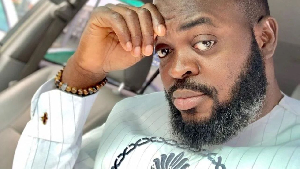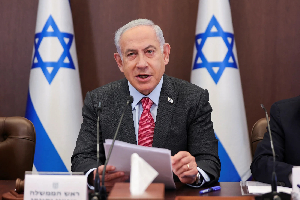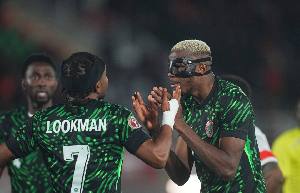I have a friend who may or may not be reading a copy of Nnedi Okorafor’s ‘Lagoon’ which I sent him. I was furious when he told me he found it extremely difficult to write Nigerian characters or a Nigerian setting.
“I just can't relate to Nigeria,” he said.
Just to be clear, he is a Nigerian. He said that if I insisted, he might very well consider giving up the writing craft. It was that hard for him. I was irate. Very much so that I began working on this essay. But I must warn you that if you shot me for every time I used the word Nigerian in this piece, you'd be guilty of second-degree murder.
Fiction in the times of Achebe was written allegorically in response to colonialism and its effects. Literature was a potent mouthpiece in those times. Our stories were steeped in backdrops of poverty, slavery, corruption, and war.
Those were the stories African classics told, unlike Shakespeare's classics on love, H.G Wells’ take on time travel, or Frankenstein’s theme on the dangers of unbridled scientific endeavours. But times have changed, yet one thing remains the same: how Nigerians perceive the literature of its people.
Growing up, I devoured foreign books which included Little Women, Anne of Green Gable, and several Enid Blyton books. My school library was filled with American books, some of them adaptations from the cartoons I watched.
Hardly did I come across Nigerian or African books besides the short story pamphlets that had titles like ‘The Evil Stepmother’ or ‘Dara and the Magic Bucket’. They were mediocre and often really bad stories, though I tried my hand at writing one when I was in Primary Three (It was titled ‘The Lost Child’, but that's another story). I also saw a lot of shows and movies growing up and needless to say, most of them were foreign ones (24, Prison Break, Alias, Lost, etc).
The energy was the same for Nigerian music which bored me to death, to say nothing of its literature. Our literature, I should say, but at the time, I had a mild distaste for anything Nigerian. I even prided myself on the fact that I didn't listen to Nigerian music (I do now, but selectively).
It is important to say that it was not all in my head; I did not just hate my country for the sake of it. There were, and still are, very bad things that have been put out there and I cannot bear to watch most of them.
To borrow the phrase from Chimamanda Ngozie Adichie (whose 2008 TedEd Talk I saw while researching for this essay), I was experiencing the dangers of a single story.
I had a limited exposure to the works Nigeria had produced and therefore the impression of my country when it came to creativity was severely off the mark. This is a plausible reason for one to decide that if he is to write anything good, it must be something that does not resemble his people at all.
To buttress this point, I have never been a fan of fantasy, (I don't particularly like the Harry Potter books. Deal with it, Rowling), but a recent read of Wole Talabi's ‘Shigidi and the Brass Head of Obalufon’ caused a paradigm shift in my appreciation for the genre.
Although I do not believe I will venture into writing fantasy (at least not in long-form), I very much will read it, thanks to Talabi, who kindled the fire of appreciation for it in my heart. Who would have thought I, of all people, would like fantasy because of a Nigerian book?!
The Nigeria I know today, having digested a whole lot more than just a single story, is one that can comfortably accommodate genres such as science fiction and execute the job excellently, with the works of Nnedi Okorafor and Tade Thompson being a testament to that.
I have seen and read Nigerian books that have swept me off my feet and I am still reeling over how talented we are in our craft of storytelling. You can tell African literature from an Asian or English one just from how it is written, the descriptions, the way similes and metaphors are weaponized, the expression of emotions, and the rendering of action scenes. It has a texture unlike I have ever read from other great foreign works.
My mother is someone I should thank for introducing me to the literary space. I got to know about Chinua Achebe, Ben Okri, Cyprian Ekwensi, and Buchi Emecheta from her. Anytime I mentioned Buchi, she would exclaim, "Joys of Motherhood!"
This is where problem number two comes in. Because while I appreciate books of her time, it very much does not specifically inform who I want to be as a writer. They teach me how to use words in dynamic ways and they show me alternative ways of telling a story, but they do not, in any way, teach me how to write about a Nigerian astronaut navigating the pathways around Alpha Centauri. There is a disconnect, and I understand this is the same problem my aforementioned friend grapples with.
Consequently, we now have would-be Nigerian writers who do not know how to tell a Nigerian story without writing about a poor household, a wicked aunt, and so on. Some can't conceive of writing about magic without thinking of using characters named Arthur and villains like the Wicked Witch in the West. To them, magic and Nigeria do not mix. Nigeria and antimatter do not mix. Nothing good can come from that concoction, and this is an issue. Not everyone is like this of course, but those who aren't are the initiated few. How to be part of the few, you ask?
Again, think about how you are being affected by the dangers of a single story. Have you covered all the bases? Is it impossible to pull off your story idea or concept in a place like Oshogbo? Or do you have to make your sword-fighting epic a story set in Tokyo with a man named Hiro as the protagonist?
As an aside, I understand that there are people of my time who want to write like Achebe, and who want to address socio-political issues. I read Ifeoma Okoye's Men Without Ears and thoroughly enjoyed it because of the lesson in it and the way it was written. Ekwensi's ‘The Indispensable’ took me on an amazing ride and ended with a killer conclusion that gets me every time. I love to read books like these and don't mind writing one.
Regardless, I am still among the set who wish to take the reader's imagination a step further and explore themes that are not exclusive to the African experience (but are still African stories through the lens by which we tell them).
Nigerians need stories like these as well, not another heavy-duty commentary loosely disguised as fiction. Nigerians want to read what is called genre fiction like crime, romance, or horror. It's an undeniable influence from the West, but it tells the stories of these genres the way we want to read them and consequently want to write, which is fine, as long as the dialogue we writers have with the story itself speaks of our origin and heritage.
Renowned literary critic Professor Ernest Emenyonu said: “Nigeria has every reason to be proud of her writers and what this country has done is to boost that image and reputation. Unfortunately, I don’t think that Nigeria has recognized, over the decades, that her best cultural ambassadors all over the world are her writers. If the country recognizes this fact, it will permeate.”
The writer, Joseph Abiola is an electrical engineering student of the Federal University of Agriculture, Abeokuta, Nigeria, a passionate reader, writer and lover of film. You can find him on Twitter and Instagram @thejosephabiola
Opinions of Friday, 3 May 2024
Columnist: Joseph Abiola, Contributor
Why Nigerian writers are having foreign voices
Entertainment














